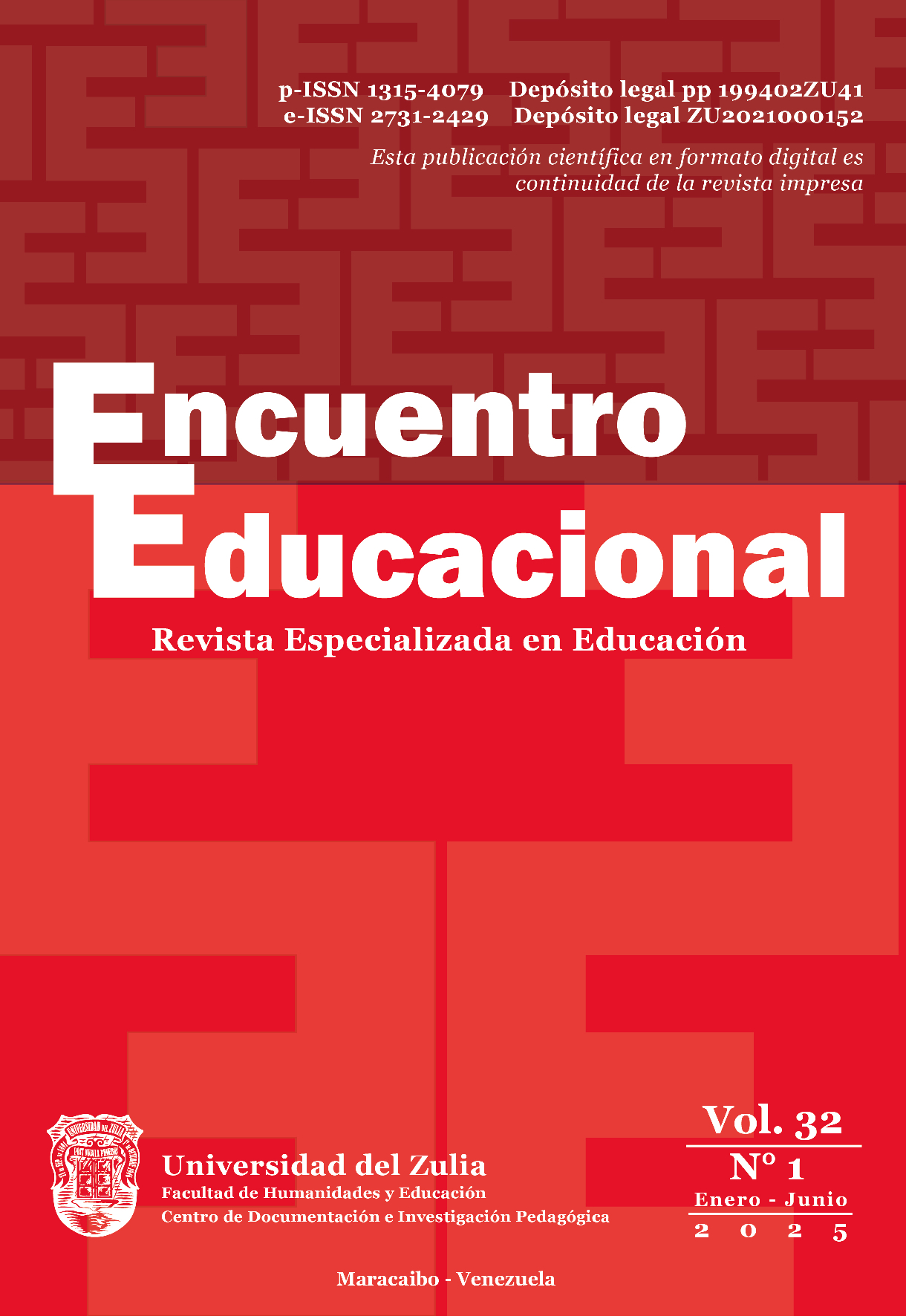Producción Cultural y Generación de Riqueza: Tejiendo Relaciones Pedagógicas con el Buen Vivir
Cultural Production and Wealth Generation: Weaving Pedagogical Relationships with Good Living
Abstract
Andean communities resist cultural homogenization and reivindicate their identity, sustainability, and ancestral values. Cultural production, understood as an act of resistance, integrates traditions, music, and handicrafts as pillars of social cohesion and sustainability. The purpose of this essay is to analyze, through a critical review of the literature, key works such as Leff’s (2009) environmental rationality and de Sousa Santos’s (2010) ecology of knowledges, as well as practical cases and public policies that reflect the application of good living in education and sustainability. It is argued that these theories challenge extractivist development models, promoting a notion of wealth that encompasses social, cultural, and environmental well-being. The qualitative and documentary methodology applied was grounded in a critical and decolonial perspective to interpret the connections between cultural production, wealth, and pedagogy, with particular attention to community practices that resist extractivist models. The results highlight that integrating local knowledge and community values into education strengthens cultural identity, promotes sustainability, and redefines wealth beyond the material. The pedagogy of good living, with its focus on balance with nature and the community, offers an ethical and practical alternative to the hegemonic development model. It is concluded that this approach contributes to social justice, cultural preservation, and sustainability, representing a path towards an equitable and harmonious future.
Downloads
References
Acosta, A. (2013). El Buen Vivir: Sumak Kawsay, una oportunidad para imaginar otros mundos (6ª ed.). Icaria Editorial, Barcelona.
Ambrós-Pallarés, A., Sabariego Puig, M., & Fuentes Moreno, C. (2023). Quality of a master’s degree in education in Ecuador. Humanities & Social Sciences Communications, 10, 1-11. https://doi.org/10.1057/s41599-023-01503-6
Carrera, B., & Ruiz, Z. (Eds.). (2016). Abya Yala Wawgeykuna: Artes, saberes y vivencias de indígenas americanos (1er Vol.). Acer-VOS. https://crespial.org/wp-content/uploads/2019/09/Abya-Yala-Wawgeykuna-Artes-saberes-y-vivencias-de-indigenas-americanos.pdf
Conversi, D. (2010). Cultural homogenization, ethnic cleansing and genocide [Homogeneización cultural, limpieza étnica y genocidio]. Oxford Research Encyclopedia of International Studies. https://doi.org/10.1093/ACREFORE/9780190846626.013.139
Corte Interamericana de Derechos Humanos. (2011). Derechos de la naturaleza, globalización y cambio climático. https://www.corteidh.or.cr/tablas/r32323.pdf
De Sousa Santos, B. (2010). Descolonizar el saber, reinventar el poder. Trilce.
Duncombe, S. (2007). (From) Cultural resistance to community development [(De) La resistencia cultural al desarrollo comunitario]. Community Development Journal, 42(4), 490-500. https://doi.org/10.1093/cdj/bsm039
Freire, P. (2018). Pedagogía del oprimido (56ª ed.). Siglo XXI.
Kumpoh, A. (2023). Can cultural homogenization be an open-ended process? Reconstructing the narratives of Brunei’s homogenization process [¿Puede la homogeneización cultural ser un proceso abierto? Reconstruyendo las narrativas del proceso de homogeneización de Brunéi]. Journal of Ethnic and Cultural Studies, 10(2), 75-89. https://doi.org/10.29333/ejecs/1489
Leff, E. (2009). Racionalidad ambiental: La reapropiación social de la naturaleza (2ª Reimpresión). Siglo XXI.
Mesa-Manosalva, E. G. (2022). Education for the Culture of Peace in the Context of Los Pastos, Colombia [Educación para la Cultura de Paz en el Contexto de Los Pastos, Colombia]. Revista Electrónica Educare, 26(3), 1-21. https://doi.org/10.15359/REE.26-3.3
Mignolo, W. (2011). Historias locales/diseños globales: Colonialidad, conocimientos subalternos y pensamiento fronterizo (1ª Reimpresión). Akal.
Pauta-Ortiz, D. P., Mansutti-Rodriguez, A., & Collado-Ruano, J. (2023). Aportaciones filosóficas y antropológicas del Sumak Kawsay para las pedagogías de las artes en la Educación Superior ecuatoriana. Sophia, colección de Filosofía de la Educación, (34), 87-115. https://dialnet.unirioja.es/servlet/articulo?codigo=8781816
Patsiurko, N., Campbell, J. L., & Hall, J. A. (2012). Measuring cultural diversity: Ethnic, linguistic and religious fractionalization in the OECD [Medición de la diversidad cultural: fraccionamiento étnico, lingüístico y religioso en la OCDE]. Ethnic and Racial Studies, 35(2), 195-217. https://doi.org/10.1080/01419870.2011.579136
Stiglitz, J. E. (2012). El precio de la desigualdad: El 1 % de población tiene lo que el 99 % necesita. Taurus.
Thomas, B., Clegg, K. A., Holding, A. C., & Koestner, R. (2022). From the good life to good living: A longitudinal study investigating the relationship between good-life coherence and motivation, goal progress and subjective well-being [De la buena vida al buen vivir: un estudio longitudinal que investiga la relación entre la coherencia vital y la motivación, el progreso de las metas y el bienestar subjetivo]. Journal of Happiness Studies, 23, 1887-1900. https://doi.org/10.1007/s10902-021-00476-0
Vallejos-Romero, A., Mayorga Rojel, A. J., Garrido, J., & Boso, À. (2022). Construcción social y narrativas socioambientales del riesgo. Lineamientos para su observación en instituciones políticas. Andamios, 19(49), 441-462. https://doi.org/10.29092/uacm.v19i49.937
Villa Zura, M. P., & Crespo Berti, L. A. (2020). El holograma del Sumak Kawsay, principio, valor o regla: Cooperativismo al buen vivir en el sistema constitucional ecuatoriano. Dilemas Contemporáneos: Educación, Política y Valores, 7(Especial), art. 30. https://doi.org/10.46377/dilemas.v33i1.2123


















